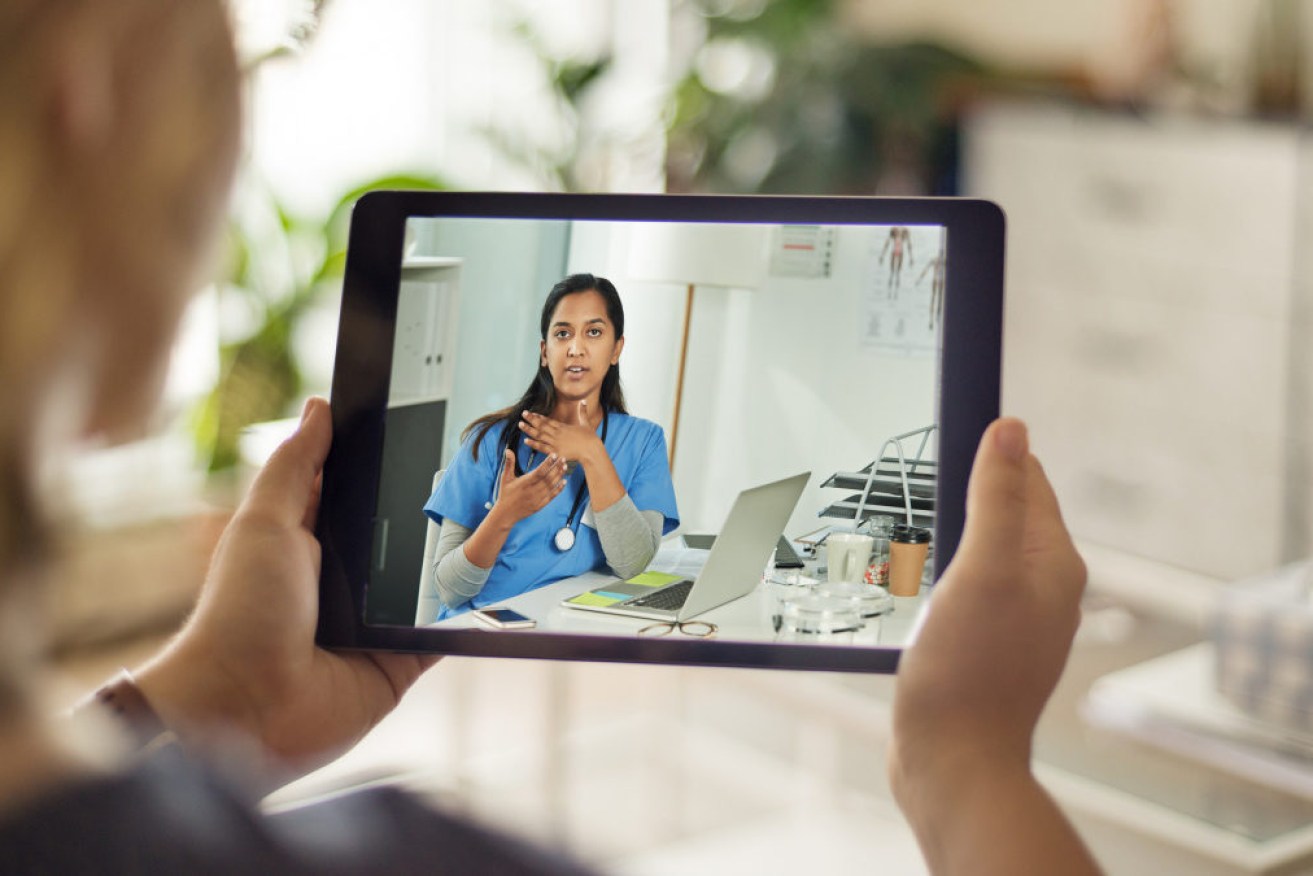Australia’s telehealth revolution: Coronavirus is changing the way we access healthcare


Telehealth is considered crucial to combatting COVID-19. Photo: Getty
The coronavirus pandemic has ushered in a telehealth revolution that will transform the way Australians access healthcare, experts say.
Last month, the federal government rushed through changes to the Medicare Benefits Scheme (MBS) to allow for “whole of population” access to telehealth services, including phone and video consults with GPs and psychiatrists.
Australia’s expanded telehealth coverage has been billed as a temporary measure designed to protect patients and doctors and reduce the spread of COVID-19, with the changes due to be reviewed in September.
But if the nationwide telehealth experiment proves successful, the government may find it difficult to roll back.
“What will be fascinating will be the extent to which our world is permanently changed by the current crisis,” ACCC chair Rod Sims said on Monday.
Both e-health and e-education have been much talked about for years but they are now necessarily being embraced.’’
On Thursday, Health Minister Greg Hunt said there had already been “approximately 2.5 million telehealth consultations”.
Australians are adapting to a new way of speaking to their doctor, of speaking to their medical advisers and their health advisers,’’ Mr Hunt said.
Telepsychiatry’s role in the fight against COVID-19
Psychiatrist Dave Carmody is a founding director of Call to Mind, a telepsychiatry service that has long treated patients in remote areas that would otherwise find it difficult to access mental health support.
The coronavirus means that people in metropolitan areas are experiencing “similar difficulties around access” as well as “the risks associated with seeing people face to face in clinics and hospitals”, Dr Carmody said.
“That’s why there’s been a big push to adopt the telehealth model that had already been well established and is working well in rural areas to include metro areas.”
Telehealth is already well established in countries including China and South Korea, and COVID-19 is expected to supercharge its uptake in Australia.
Although some patients find it “quite intimidating to start doing telehealth visits, particularly if they are used to doing face-to-face care with a medical professional”, that feeling tends to be fleeting, Dr Carmody said.
“It is different (to a face-to-face consultation) in the initial few moments, but that seems to quickly melt away, both from the patient’s point of view and the clinician’s,” he said.
By the end of the consult it actually feels very natural and people tend to adapt to it really well.’’
Telehealth is also an important tool for supporting healthcare workers on the front lines of the COVID-19 fight, Dr Carmody said.
There’s an enormous ongoing toll on healthcare workers and their families,’’ he said.
“I’ve certainly seen that amongst my colleagues and friends that are working in those frontline situations. Supporting them is going to be a massive task.”
Frontline workers are “often time poor and are working long hours, so it can be difficult to access traditional services”, Dr Carmody said.
“Making use of some of those telehealth services might be a useful way of getting around some of the barriers that exist for them.”
How telehealth works
Bulk-billed telehealth became available at the end of March, but this week the government introduced new Medicare Benefits Schedule items allowing doctors to charge their usual fees.
But GPs, mental health, and chronic disease management specialists can continue to bulk-bill vulnerable patients at their discretion or per their practice’s policy.
Telehealth allows patients that don’t require a physical examination to talk to their doctor from their home over the phone or via video platforms, such as FaceTime.
A telehealth doctor appointment can be made in the same way as a face-to-face appointment, by contacting your local GP’s office online or by phone.
Those seeking mental health support, including telehealth psychiatry sessions, should first chat to their GP.
Telehealth allows doctors to screen patients for COVID-19 and treat mild symptoms or refer them for testing if required, reducing the risks associated with a face-to-face consultation.
It can also be used for everything from prescriptions, referrals and medical certificates to treatment of minor ailments.
If you are concerned about your or a loved one’s mental health, contact Lifeline on 13 11 14








